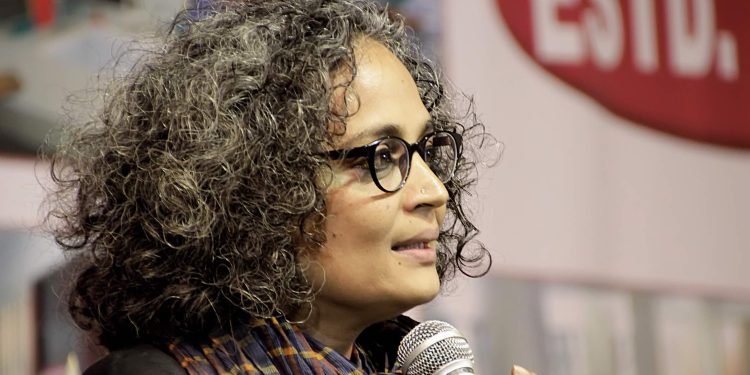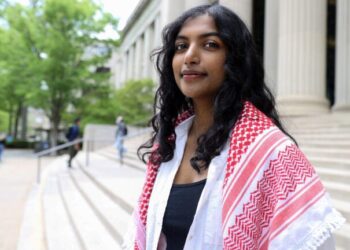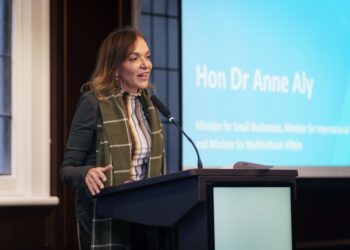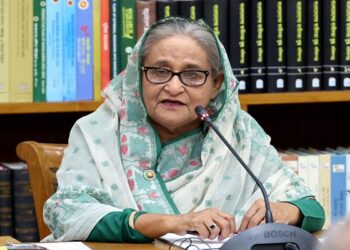In a poignant address at an event in Kerala, renowned Indian author and activist Arundhati Roy expressed deep concerns about the moral compass of her homeland, highlighting the erosion of democratic institutions and the looming threats to federalism. Roy, known for her outspoken views, emphasised the urgency of the situation and the need to address critical issues facing India.
“I am not going to speak about the demise of the free press in India. All of us gathered here know all about that. Nor am I going to speak of what has happened to all the institutions that are meant to act as checks and balances in the functioning of our democracy. I have been doing that for 20 years and I am sure all of you gathered here are familiar with my views.”, Roy said.
Instead, she shifted focus to a more immediate concern—the potential disempowerment of South India through the delimitation exercise if the current regime retains power in the upcoming elections.
“If the current regime returns to power next year, in 2026 the exercise of delimitation is likely to disempower all of South India by reducing the number of MPs we send to Parliament.”, Roy warned, adding, “Delimitation is not the only threat we face. Federalism, the lifeblood of our diverse country is under the hammer too. As the central government gives itself sweeping powers, we are witnessing the sorry sight of proudly elected chief ministers of opposition-ruled States having to literally beg for their States’ share of public funds.”
Drawing attention to the recent Supreme Court judgment upholding the revocation of Article 370 in Jammu and Kashmir, Roy underscored the broader implications for federalism in India.
“The latest blow to federalism is the recent Supreme Court judgment upholding the striking down of Section 370 which gave the State of Jammu and Kashmir semi-autonomous status. It isn’t the only State in India to have special status. It is a serious error to imagine that this judgment concerns Kashmir alone. It affects the fundamental structure of our polity.”, Roy said.
The author highlighted a global phenomenon where people seem to be voting against their own interests based on manipulated information. Roy argued that control over information and technology translates to control over the world, emphasising the poisoned chalice of modern information dynamics.
Turning her attention to international affairs, Roy criticised the silence in India regarding the Israeli-Palestinian conflict. She expressed disappointment in the lack of solidarity from Indian writers and intellectuals, labelling it a “terrible shame” and a failure of foresight.
Roy said, “I said we, as a country, have lost our moral compass. Across the world millions of people—Jewish, Muslim, Christian, Hindu, Communist, Atheist, Agnostic—are marching, calling for an immediate ceasefire in Gaza. But the streets of our country, which once was a true friend of colonised people, a true friend of Palestine, which once would have seen millions marching, too, are silent today. Most of our writers and public intellectuals, all but a few, are also silent. What a terrible shame. And what a sad display of a lack of foresight. As we watch the structures of our democracy being systematically dismantled, and our land of incredible diversity being shoe-horned into a spurious, narrow idea of one-size-fits-all nationalism, at least those who call themselves intellectuals should know that our country too, could explode.”
Delving into historical context, Roy revisited her 2002 lecture, “Come September,” drawing parallels between the suffering of the Palestinian people and the erasure of their identity. She scrutinised the rhetoric employed by Israeli leaders, exposing a long-standing myth of a “Land without a People for a People without a Land.”
Roy passionately argued against the Israeli occupation of the West Bank and the siege of Gaza, labelling them as crimes against humanity. She held the United States and other supporting nations accountable, asserting that the ongoing conflict is a consequence of the occupation.
In a call to action, Roy insisted that a political, not militaristic, solution is imperative for the coexistence of Israelis and Palestinians. She urged the world to intervene, emphasizing the end of the occupation, the establishment of a viable Palestinian homeland, and the right of Palestinian refugees to return.
Concluding her speech, Roy expressed gratitude for being honoured at the event and pledged the accompanying prize money towards supporting activists and journalists standing up against injustice.











